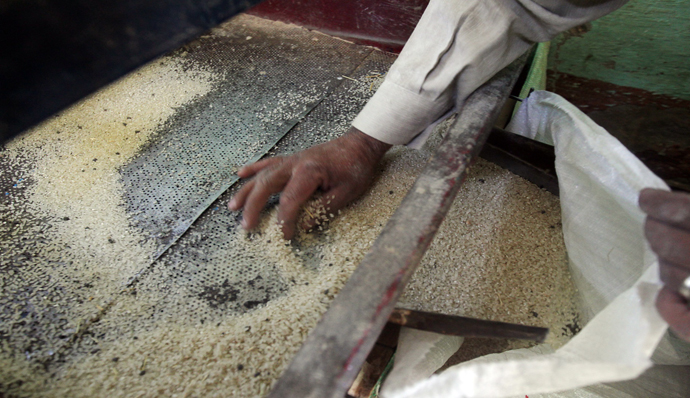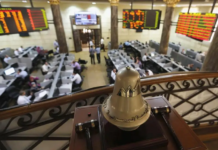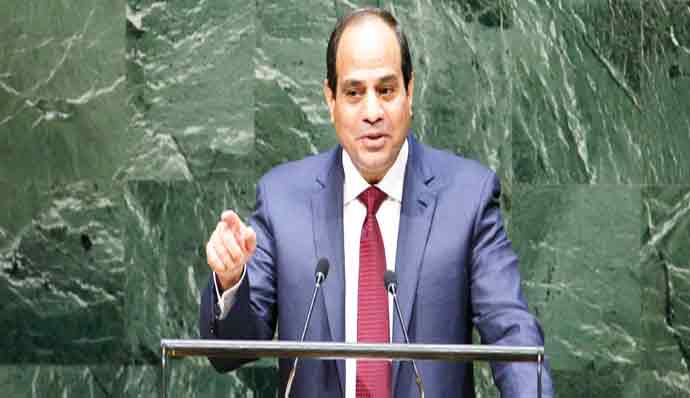
Controversy has risen concerning the absconding of a million tons of rice which were supposed to be offered in the markets for consumers under reduced prices as part of governmental support offered to low-income citizens.
Khalid Hanafy, Minister of Support, points out the rice insufficiency of this year and its vanishing through smuggling activities went through borders. He named these activities as “Replacing rice with dollar» explaining that what happened is a result of smuggling activities. Mahmoud Diab, Ministry of Supply’s Spokesman, declared that some traders smuggled rice to Libya and Sudan through the borders, the smuggled rice is valued at $800 per ton.
“When the government opened the way for exports, the ministry exported 240 thousand tons out of 3 million tons and the rest was exported illegally through borders’ passages”, Hanafy said. “We offer huge amounts of rice under the price of EGP 4 and provide 1500 ton of rice on a daily basis,” he added.
Diab has asserted that the ministry is working on a solution for the rice crisis and the rice process will soon go down by the end of this month. The Ministry of Supply aims at purchasing 1 million tons of barely rice from farmers to increase the market supply which will lead to price decrease.
Experts believe that increasing agriculture landscapes of rice is of a great necessity to deal with the crisis promptly without the need to import. Egypt is facing water level decline crisis, along with the rice crisis. Dia El Kousy, Chancellor of the Minister of Water Resources and Irrigation, refused the previous suggestion of increasing the agriculture landscape as rice needs too much water to grow. El Kousy demands the recycle of industrial wastewater and therefore its use in watering green landscapes and trees instead of using drinking water. He asserted the importance of launching new projects to recycle wastewater in order to be fit for agriculture use, in addition to finning shops owners who use drinking water in spraying streets.
The American online website “Al Monitor” has pointed out the emergency case that the Ministry of Supply and Water Resources has announced starting from last May to August. The online website has mentioned that Egyptian villages have witnessed protests against the ministry’s officials. The protests went on as a result of throwing chemical waste which led to burning rice seedbeds; these rice seedbeds were built against governmental laws stating that rice cultivation must be limited to specific landscapes.
“Al Monitor” online website reported that one of the farmers, called Nabil Al-Shahat, who broke rice cultivation law in Al Sharkia governorate said: “My children will starve to death the whole year if I act according to this law. I am used to farm 1.5 acres of rice and the prices increase drove me towards breaking this law.”
The website added that rice cultivated landscapes increased at a number of 1 million acres in a month, i.e. 174 thousand acres to 1 million and 174 thousand acres, according to the government’s report.
On the other hand, Walid Hakiki the Ministry of Irrigation’s Spokesman said: “Egypt cannot bear wasting water anymore. Exporting crops that need a huge amount of water to grow, such as rice, banana and sugar cane, is a burden on Egypt’s water resources. Therefore, we should be committed to the areas appointed by the ministry in order to just achieve rice self-sufficiency.














